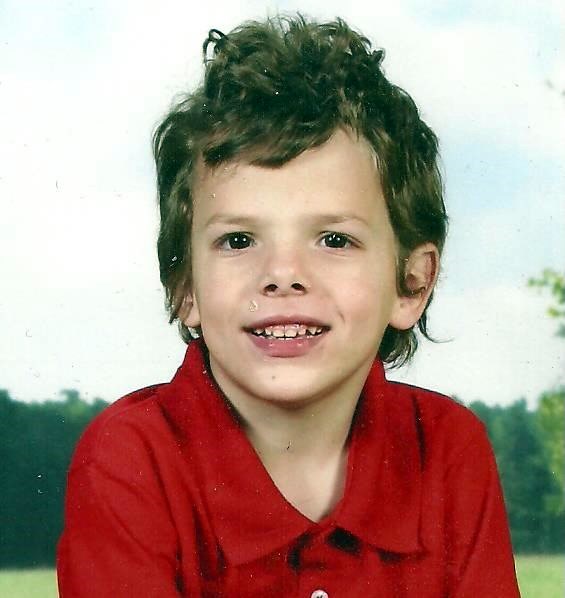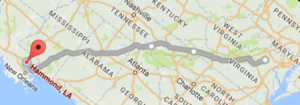
“Tears are the silent language of grief.” —Voltaire
It has been said that the worst pain a parent can feel is the loss of a child. I now understand, and agree with, that statement. Thursday, November 21, 2019, would have been my son Michael’s seventh birthday. Tuesday, September 24, 2019, was the day he suffered an accident that ultimately ended his short life.
The events of that day are hard to keep straight, even after several weeks, but I will try. Caitlin, Michael and I had arrived home around 6:30 in the evening after a very routine trip to the grocery store. We had also spent a little time at a local playground and took care of a few quick errands. When we arrived home, Caitlin went into the house while I unloaded some of the groceries. Michael climbed out of the car and started walking toward the front door, like he had done dozens of times prior. At that moment I received a phone call.
Somewhere within the next few minutes, catastrophe struck. I had been on the phone for roughly five minutes, when Caitlin asked me, in alarm, where Michael was. The last time I had seen him, he was walking toward the front door. But apparently, at the last minute, he changed direction and went somewhere else.
Michael had wandered off before, so this wasn’t without precedent. He wore a signal device on his ankle for just such an emergency. Caitlin called 9-1-1 while I quickly ran around the property to see if I could find him. After a few minutes, emergency services had started scanning for his signal device, and help was on the way. In the mean time, I continued to search the area around the house while Caitlin spoke on the phone with Lisa, who was still in town on other business. Within ten minutes, people from throughout the neighborhood were searching for Michael. A few minutes after that, two sheriff’s office patrol cars arrived and joined in the search.
At roughly 7:00pm his signal was located, and he wasn’t far from the house. But the signal wasn’t moving, so the policemen were getting anxious. A few minutes later he was found floating face down in a pond, not a tenth of a mile from our house. He was cold, wasn’t breathing, was unresponsive, and his heartbeat was erratic. He was immediately rushed to Culpeper hospital. By this time, Lisa had returned home, so we quickly loaded into the car and started for town.
Upon arriving at Culpeper hospital, Lisa ran to the emergency room to see Michael, while I stayed with Caitlin. For close to 80 minutes they worked to necessitate him and stabilize his pulse. They eventually succeeded in stabilizing his heartbeat, but he was still unresponsive. A doctor informed us that he was being airlifted to the University of Virginia’s pediatric hospital in Charlottesville where further treatment could be performed. But the doctor feared that Michael was already brain dead.
We collected ourselves and left. The plan was to make a quick stop at home for a change of clothing, medications, and the like. On the way home we hit a deer. The crazy animal literally appeared out of nowhere and destroyed the car windshield! Fortunately, the car could still be driven, so I turned on the hazard lights and slowly drove the rest of the way home. We picked up what we needed, loaded into our other car, and headed for Charlottesville.
We arrived there around 11:30pm, and found Michael in a ward room connected to various tubes and monitoring devices. We was receiving a steady supply of medication to keep his heart running, and a respirator was helping him to breathe.
By this time Lisa, Caitlin and I were expecting the worst. The hospital chaplain on duty was an Episcopal vicar from the University. He was very helpful in helping us to focus and remain calm. He did not perform last rites on Michael, because we weren’t at that point yet, but he did recite a special prayer for seriously ill patients.
The next several hours were long and surreal. The real concern was that there was no sign of neural activity. Over the course of the night, nine different doctors, all with different specialties, examined Michael. Unfortunately, all of them said the same basic thing. Namely, Michael wasn’t going to survive.
We had one last cause for hope. If Michael had slipped into some sort of coma, he could potentially wake up. If such a thing is going to happen, it almost always happens within 24 hours. Also, an EEG test would determine weather or not his brain was still functioning. But to be reliable, we would have to wait for the appropriate specialists to arrive in the morning.
We made a few phone calls to workplaces and schools to let people know where we were, and why we wouldn’t be showing up that day. Then we started calling family members, some of whom were out of the country at the time.
The neural specialists arrived around 10:00am on September 25, and started testing. There was still no neural activity. Michael didn’t even show a blink response when his eyes were subjected to bright light. The EEG rating was so low that the technicians weren’t sure they were picking up background electrical activity from the instruments themselves.
The prognosis was simple, and tragic: Michael’s brain was gone. It was only a matter of time before his heart and lungs stopped working. Now we had to make the most difficult decision that anyone can ever make. But before we did, there was one more expert we needed to consult.
We contacted the hospital chapel and requested a Roman Catholic priest. The church is notoriously strict about certain things, including when to take a person off of life support, so we wanted to speak with a priest before proceeding.
The Newman center at the University of Virginia hosts a small Dominican friary, and one of the friars came to see us at about 1:00pm. I wish I could remember his name (it is written down in our papers somewhere), but he was a very understanding man. He also knew the vicar who spoke with us the night before, and may have already spoken with him. We explained the events of the previous several hours, including the assessments of all the medical personnel who had examined Michael.
The priest informed us that whenever there is a reasonable chance of improvement, medical treatment should continue. That is, if there is still a chance of the patient recovering, we – the family – are morally obligated to continue treatment. But for Michael, this was not the case. After considering everything he knew, the priest concluded that continuing medical treatment on Michael was not going to bring any useful results. After some discussion, we decided to meet Michael “half way.” We would reduce the medication to a minimum, and allow Michael to leave on his own.
But a new development appeared. A social worker asked us if we wanted to donate any of Michael’s organs for transplant, or if we wanted any of his tissue samples to be used for scientific study. This was a surprisingly easy decision to make.
We easily agreed to organ and tissue donations. After all, Michael wasn’t going to need them for much longer. This required him to remain on life support for a few more hours while the necessary surgical equipment was prepared and the needed personnel were gathered. Everything would be ready shortly after 8:00pm that night.
While completing the paperwork for the donations, I asked if a brain tissue sample would be taken. When I was informed that one would be, I stipulated that it include a portion of his corpus callosum membrane. That is the membrane that coordinates communication between the two hemispheres of the cerebral cortex – the left and right brain. In Michael’s case, it was always thin and inefficient. The two halves of his brain literally didn’t communicate well. This was arguably the root cause of his disability, and I wanted to make sure it was examined. Perhaps something could be learned that would help future patients. The social worker noted my concern, and told me that it would be followed.
The priest performed the anointing of the sick, followed by last rites. The equipment was re-configured to keep him stable for several more hours, and that was pretty much that. The priest returned to the friary around 2:30pm, while the three of us went to the hospital cafeteria for a much needed meal. We were beyond exhausted, and our emotions were all over the map. All in all though, it was a welcome break.
Shortly after 8:00pm that night, we were informed that the surgery rooms were in the final stages of preparation, and that everyone who needed to be present was on site. The medication drip was reduced to minimum, and he was disconnected from the respirator. Then something very beautiful happened.
The hospital has a ritual they perform when a terminal patient is being taken to donor surgery. As the patient is wheeled through the hospital, staff members in whatever rooms are passed go into the corridor and watch them roll past. It is their show of respect to the patient and the grieving family. Michael was wheeled through the hospital, flanked by several doctors and nurses, while Lisa, Caitlin and I followed behind. Along the way, his favorite song was playing on my smart phone. As difficult as it was, it did provide some comfort.
Michael’s heart and breathing stopped shortly after 9:00pm on September 25. We started for home about thirty minutes later, to whatever future awaited us.
Michael was entrusted to the Clore-English funeral home in Culpeper. His funeral mass took place a week later, on October 4, and his ashes were interred on October 21.
I will add to this story when I am able. But for the moment, this is as far as I can go.
“Tears are words that need to be written.” ―Paulo Coelho


